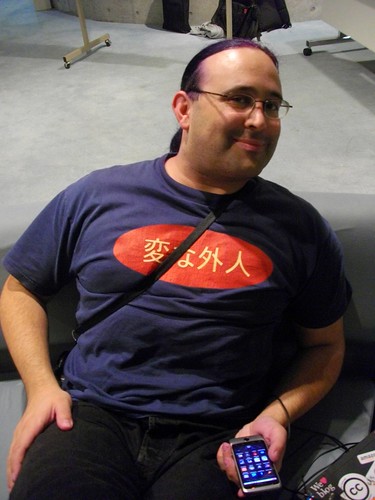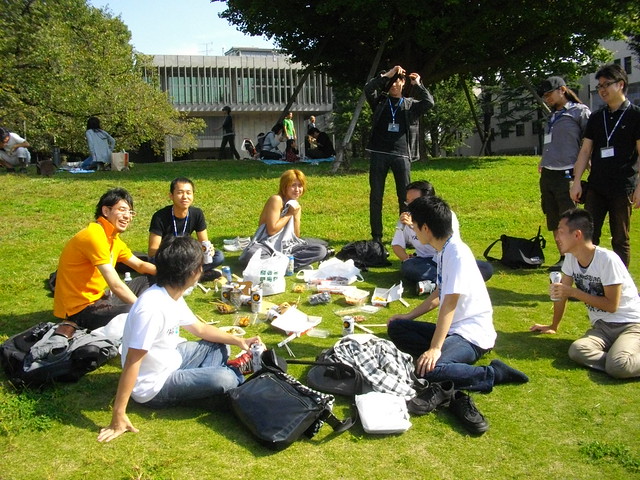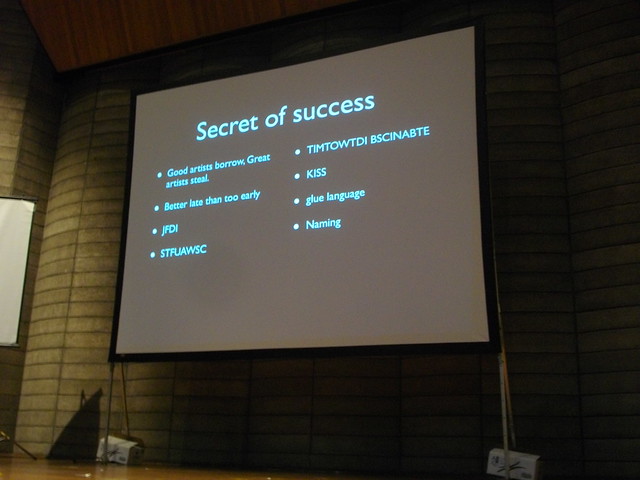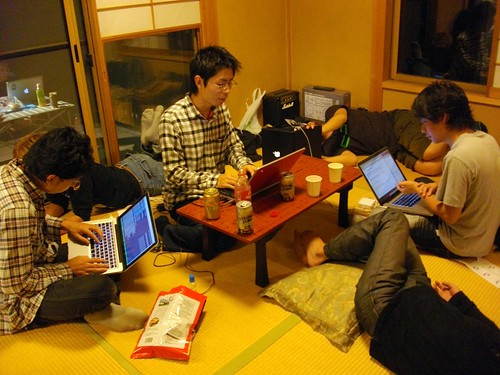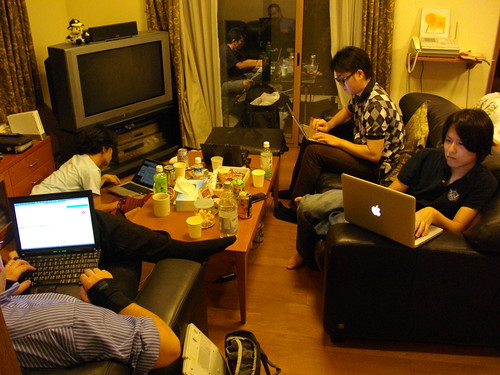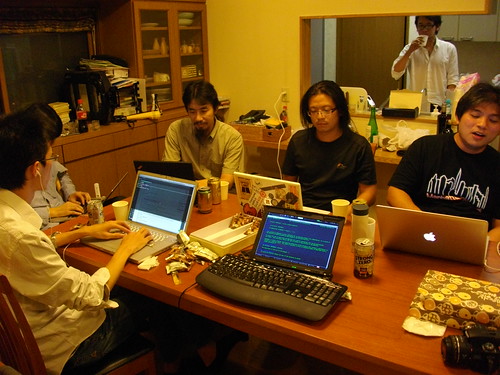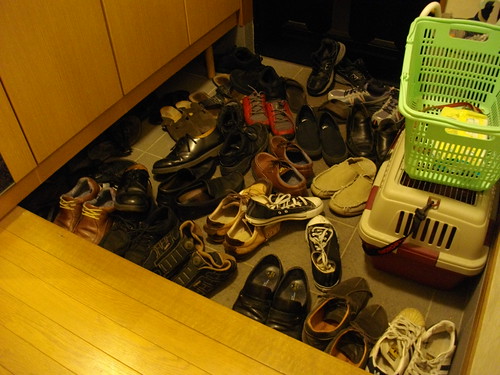Thursday, September 14 - Pre-Conference Meetup
One day before the conference, we had the PerlCasual#4 developer meetup event organized by @yusukebe. The event was born as the antithesis of Shibuya.pm's technical talk events which were filled by too deep talks, such like x86, XS, binary etc., by super-guru hackers. Casual developers need another place.
At the event, I gave at a lightening talk "Reporting OSDC.TW - Shibuya.pm in Taipei." This April, we went the OSDC.TW 2010 conference in Taiwan. Shibuya.pm people, including me, gave talks there.
The first half of my talk reports the event and the reason we went there.
And the second is about my 3D JavaScript talks.
Try my slide here and push [3] key on your keyboard to view slides in 3D mode.
Photo (left): @obra's T-shirt shows he is a "Strange Alien."
Friday, September 15 - Conference Day #1
At the first day of the conference, I and my colleague @iandeth gave a talk. His slides are here. My part is about the Mashup Awards 6 (MA6), Japan's largest web application development contest. My slides are here.
The day #1's after-party was the official party held in the venue.
@clkao's T-shirt shows "Taiwanese." It's easy for us to see his nationality.
My ex-colleague @tsuyoshikawa is a Ruby guy but now working at a large PHP company. The company ordered him to give a talk at the Perl conference. It seems he is drunken from the stresses. :)
Saturday, September 16 - Conference Day #2
Day #2 was Saturday and sunny. Some speakers went down to a BoF looked like a picnic to have a beer under the sun.
On the other hand, as the closing keynote, @miyagawa gave us the great talk filled with many of suggestions and encouragements for developers. The talk was this year's best talk in my opinion.
He showed us the "Secret of success" that he found during his work for Plack and his other projects.
Secret of success
* Good artists borrow, Great artists steal
* Better late than too early
* JFDI (Just f* do it)
* STFUAWSC (Shut the f* up and write some code)
* TIMTOWTDI (There is more than one way to do it.)
BSCINABTE (But sometimes consistency is not a bad thing either)
* KISS (Keep it simple, stupid)
* glue language
* Naming
Thank you so much, the YAPC organizers and volunteers.
Sunday, September 17 - Hackathon
Sunday, we had the post-conference-hackathon at @hidek's.
After the hackathon, we went to a Chankonabe restaurant near @hidek's as the 4th after-patry. We had too many after-parties this week with a lot of fun!
Related Posts


